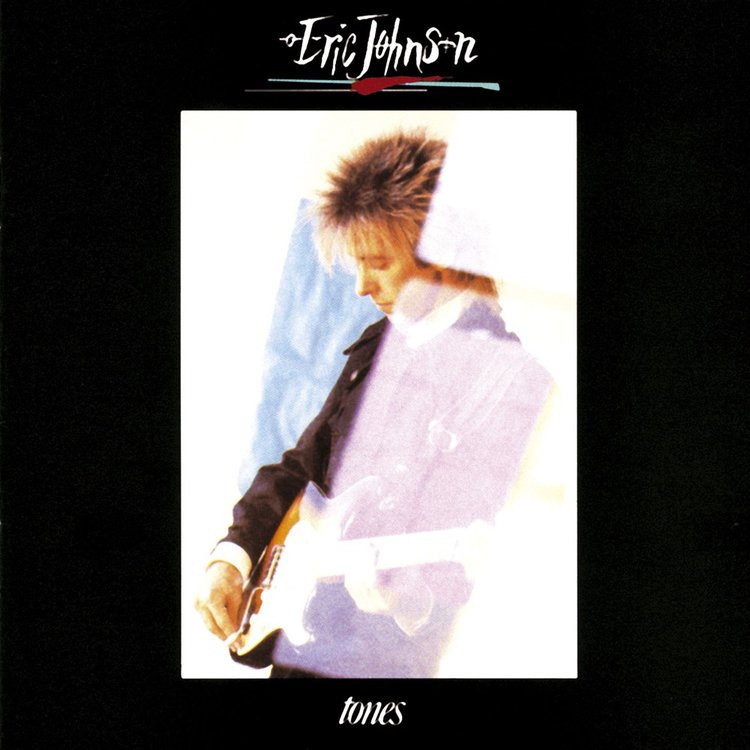Years before the release of his debut solo release Tones, I’d been hearing rumors of an extraordinarily gifted guitarist in Austin, Texas, named Eric Johnson. Steve Morse had told me, “Eric is so good it’s ridiculous. He’s extremely expressive on the electric guitar. He’s a great writer and singer, and he has an incredible style.” Jeff Baxter called him “just amazing!” and added, “This might sound silly, but if Jimi Hendrix had gone on to study with Howard Roberts for about eight years, you’d have what Eric strikes me as.” Eric’s friend Stevie Ray Vaughan sang his praises as well: “Eric is a wonderful cat. He’s always been one of my favorite people in the world, and one of my favorite guitar players. The guy has done more trying to be the best that he can be than anybody I’ve ever seen. He plays all the time and tries to get his instruments in perfect shape all the time. He works hard on his tone, sound, techniques. He does incredible things with all kinds of guitars – electric, lap steel, acoustic, everything.”
As Vaughan went on to point out, Eric had recorded a solo album, Seven Worlds, in 1978. His management at the time, though, withheld it from release. As Stevie told it, “If Seven Worlds had come out at the time it was ready, instead of being held back for the reason of dollars and pennies – someone besides Eric was holding out for too much money for a deal – he would have been as big as Jeff Beck. He would have been much more in the public eye for modern jazz, rock, and fusion.”
During the years Eric’s management put his career on hold, he continued to stay true to his musical vision and devoted hours each day to working on his songs and technique. His dedication paid off in 1985 when he signed a deal with Reprise Records and recorded Tones, one of the most auspicious and beautifully played guitar-intensive albums in rock history.
Several weeks before its release, Reprise Records sent me an advance cassette of Tones and an invitation to interview Eric for a Guitar Player cover story. I was delighted to accept, and on February 1, 1986, Eric and I met in Austin for this in-depth interview. As you’ll hear, during part of it I played back guitar snippets from the advance cassette and Eric described how he created those specific sounds.
Upon my return to California, Guitar Player editor Tom Wheeler and I discussed an issue that had come up with our publisher. We usually featured well-known players on the cover, but this was not the case with Eric, who was virtually unknown outside of Texas. We were taking a chance, and Tom came up with the brilliant idea to run this cover type: “Who is Eric Johnson & why is he on our cover?” We sold tons of issues and Eric was quick to express his gratitude. Tones went on have strong sales, and the track “Zap” was nominated for the Grammy Award for Best Rock Instrumental Performance.
I emailed Eric last week for permission to turn our 1986 cover story interview into this Talking Guitar podcast. He wrote right back, saying, “You’re most welcome to use that interview or any interviews of us that you would like to.” So stay tuned for more Eric Johnson podcasts!
Thanks to Eric, my producer Nik Hunt, the staff of UNC’s Southern Folklife Collection, and all of my paid subscribers for making this podcast possible.
ⓒ Jas Obrecht 2022. All rights reserved.












Share this post